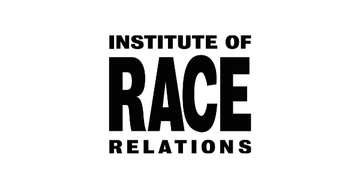
Institute of Race Relations
Set up in the 1950s to assess the state of ‘race relations’ in the UK and its former colonies, but transformed into an anti-racist think-tank in the 1970s
Other names
IRR
Location(s)
36 Jermyn Street, London; Pentonville Road, London; Leeke Street, London; Kings Cross, London.
Institute of Race Relations28 Charles Square
London
N1 6HT
United Kingdom
About
The story of the Institute of Race Relations (IRR) spans the 1950s to the present day, from its emergence in a post-war context of decolonization through its transformation in the 1970s and into its present form. The origins of the Institute can be traced back to 1952 when a Board of Studies in Race Relations was established at the Royal Institute of International Affairs or Chatham House in 1952, under the leadership of Philip Mason, an ex-Indian Civil Servant. It was initially seen as an ‘objective’ research endeavour, to collect data on race relations in Britain and former colonies which had recently gained independence, and this research would inform policy. Much of the research was backed by global business corporations with an interest in forging commercial links with Commonwealth countries. In 1958 race riots in Nottingham and Notting Hill indicated that the charity was not attuned to racial tensions within Britain so, with the assistance of a grant from the Rockefeller Foundation, it was able to establish itself that year as the independent ‘Institute of Race Relations’. Its new headquarters were set up at 26 Jermyn Street in London.
In the 1960s and 1970s, a key actor in the impending IRR reshuffle and rebrand was Ambalavaner Sivanandan (also known as A. Sivanandan). When the IRR was coming into its own, he had just migrated to the UK from Ceylon (later renamed Sri Lanka) after facing the effects of violent communalism in the country. Though his professional roots were in banking, Sivanandan became the IRR’s chief librarian in 1964. The 1960s and 1970s marked a period of change for Britain. Movements for women’s rights, Black Power and workers’ rights were fomenting voices of dissent within the Institute and a sense of disaffection surrounding its aims and executive board. The older management of the institute were increasingly seen to be out of touch with contemporary issues and the needs of minority ethnic communities. Members of staff lower down the rungs of the Institute also felt that their freedom of speech was being curtailed when the board disputed the more radical turn taken by the Institute’s journal, Race Today.
On 18 April 1972 IRR staff, led by Sivanandan, instigated what is now affectionately known as the ‘coup’ or the ‘Extraordinary General Meeting’, in which the old council were forced to resign and new managers were elected. The whole mission of the IRR had been transformed into the fight against racial injustice, and it redefined itself as a grass-roots think-tank which responded to the urgent needs of communities themselves. It also shifted the terms of its engagement, from studying ‘race relations’ and the life of immigrants in the UK to addressing structural racism.
Sivanandan took on sole directorship of the IRR in 1973 and he continued in this role until 2013. The journal of the Institute also transformed into Race & Class, originally edited by Sivanandan. It is still published regularly today. An aim for the journal was to ensure its accessibility for the ‘non-academic' community, so the perspectives of many non-academic interest groups, activists and individuals were henceforth to be found in its content. The IRR is still a strong and functioning part of the anti-racist struggle today. Currently, its new initiatives, such as its Calendar of Racism and Resistance (also a database for public use), continue to connect wider activism with more scholarly or political pursuits. It is also working on highlighting the significance of its Black history collections (including archival and library materials amassed over many years) for wider use.
British decolonization, post-1945
1958 ‘race riots’
UK and US civil rights struggles, 1950s–1980s
Black Power Movement, 1960s–1970s
Immigration Act 1971
Institute of Race Relations General Meeting, 18 April 1972
Jenny Bourne, Jon Burnett, Barbora Černušáková, Sophie Chauhan, Anya Edmond-Pettitt, Liz Fekete, Kaiisha Kukendra, Arun Kundnani, Philip Mason, John Narayan, Jessica Perera, Colin Prescod, Jim Rose, Sophia Siddiqui, Hazel Waters.
Black Cultural Archives, British Black Panther Movement, CARF (Campaign Against Racism and Fascism), Joseph Rowntree Charitable Trust, Nuffield Foundation, Organization of Women of African and Asian Descent, Race Today Collective, Royal Institute of International Affairs, Runnymede Trust.
Southall: The Birth of a Black Community (1981)
Towards an Anti-Racist Feminism (1984)
Policing against Black Britain (1987)
Deadly Silence: Black Death in Custody (1991)
Community Care: Black Experience (1994)
Fekete, Liz and Webber, Frances, Inside Racist Europe (1994)
Fekete, Liz, The Deportation Machine: Europe, Asylum and Human Rights (2005)
Kundnani, Arun, The End of Tolerance: Racism in 21st Century Britain (2007)
Fekete, Liz, Integration, Islamophobia and Civil Rights in Europe (2008)
Bebber, Brett, ‘The Architects of Integration: Research, Public Policy, and the Institute of Race Relations in Post-imperial Britain’, Journal of Imperial and Commonwealth History 48.2 (2019), pp. 319–50
Sivanandan, A., ‘Race and Resistance: The IRR Story’, Race & Class 50.2 (2008), pp. 1–30
Younge, Gary, ‘Ambalavaner Sivanandan Obituary’, Guardian (7 February 2018)
See: ‘About’, Institute of Race Relations, https://irr.org.uk/about/
See: ‘Struggling On, Staying Strong: Reflections on IRR50’, Institute of Race Relations, https://irr.org.uk/article/watch-struggling-on-staying-strong-reflections-on-irr-50/
001, Newspaper cuttings compiled by the IRR, 1977-1984, Ahmed Iqbal Ullah RACE Centre, Manchester Central Library, Manchester
CARF Magazine Archive, Institute of Race Relations (1991-2003), https://irr.org.uk/resources/carf-magazine-archive-1991-2003/
MS/1579/2/5/14/36, Institute of Race Relations (IRR), Library of Birmingham, Birmingham
ACC/1888/194, Institute of Race Relations, 1970–1975, London Archives, London
CK/2/242, Institute of Race Relations research meetings, 1970–1971, National Archives, Kew, UK
Image credit
With permission from the Institute of Race Relations
Entry credit
Ellen Smith
